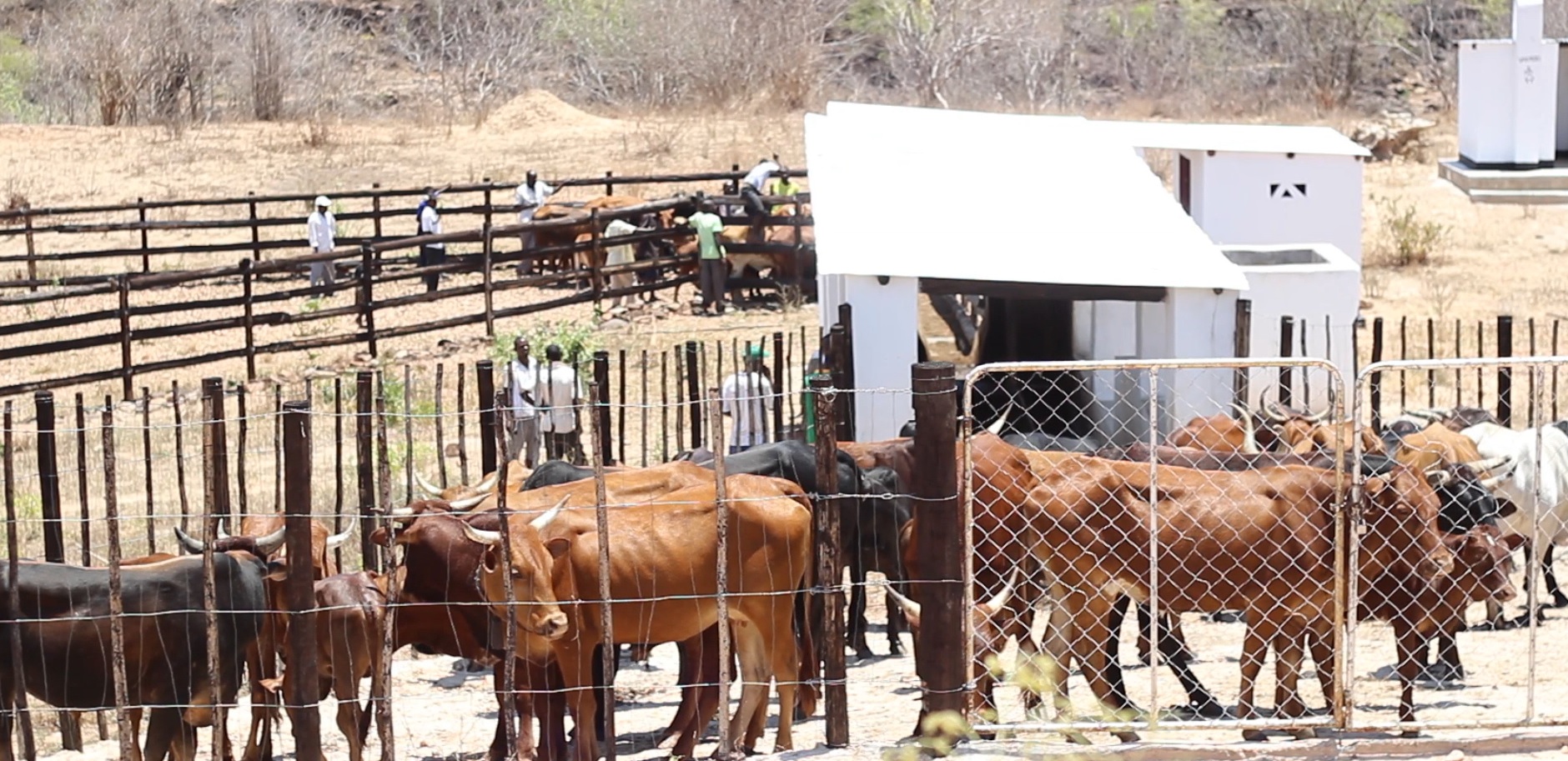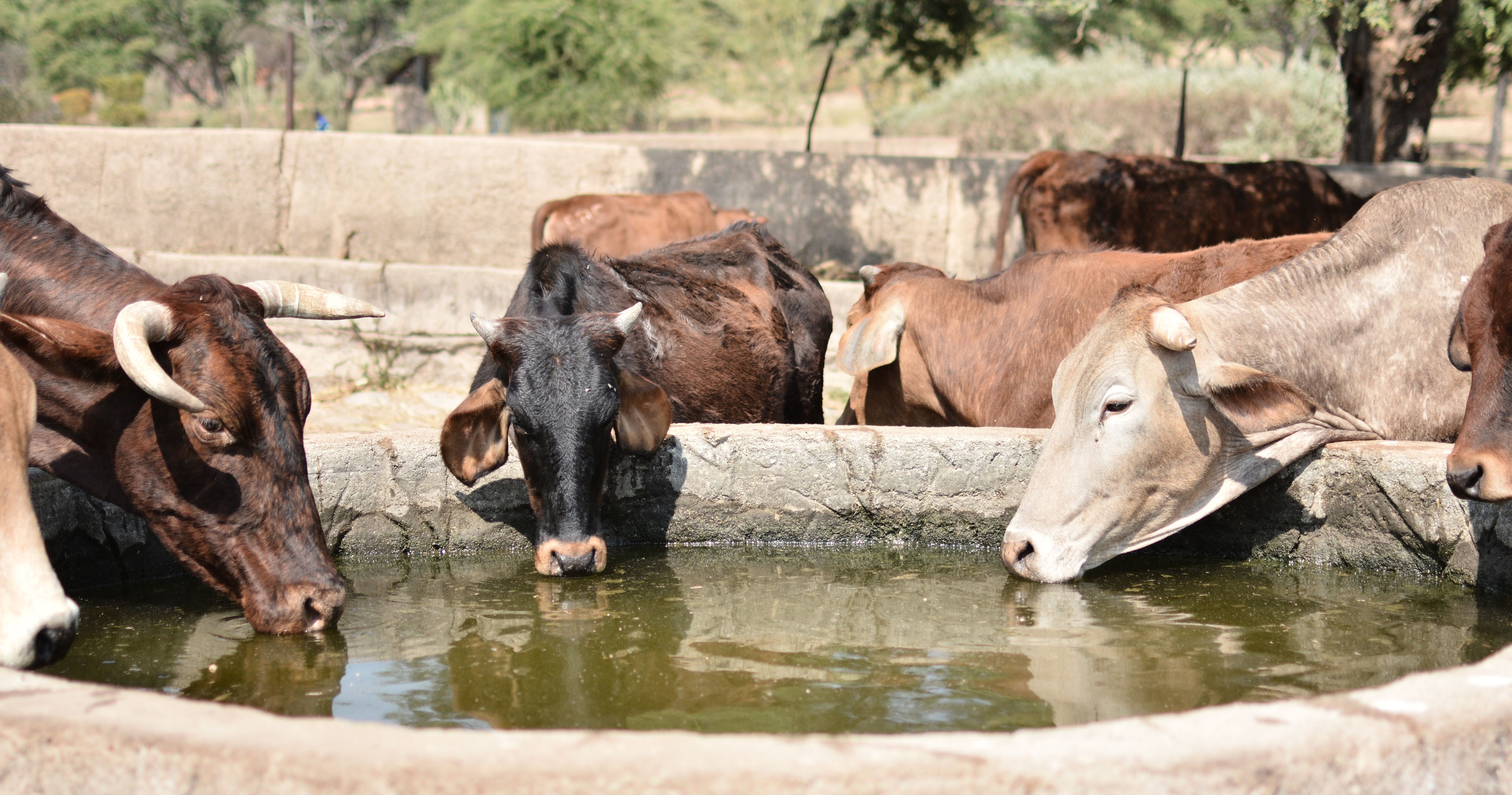
The European Union (EU) funded Transforming Zimbabwe's Animal Health and Food Safety Systems for the Future (SAFE) project will on Thursday 3 March, 2022, officially hand-over the renovated Tick Borne Disease Vaccine Production Unit and Launch of the National Tick Borne Diseases Control Strategy at the Department of Veterinary Services (DVS) head office in Harare.
The livestock sector in the country has been under severe threat from tick borne diseases (TBDs), are responsible for huge economic losses in cattle assets and farm savings in Zimbabwe where the majority of cattle owners are the resource poor communal farmers. The country’s Livestock Growth Plan 2020-2025 identifies animal health as one of the key intervention points requiring urgent attention to correctly position the Livestock sector for making meaningful contribution to National Development Strategy 1.
In the past few years, TBDs (ranked highest in terms of diseases of concern to both smallholder communal and large-scale commercial livestock farmers) have witnesses a huge upsurge, particularly Theileriosis, commonly known as January disease. According to the Crop and Livestock assessment conducted by the Ministry of Lands, Agriculture, Fisheries, Water and Rural Development for the 2019/20 agricultural season, the four tick borne diseases, Babesiosis, Anaplasmosis, Theileriosis and Heartwater, caused over 50 000 cattle deaths, constituting 69% of cattle mortalities followed by 21% in drought related deaths. The areas worst affected by Theileriosis included Goromonzi, Chivhu, Bindura, Buhera, Hwedza, Gutu, and Mhondoro-Ngezi.
To help reduce cattle deaths and improve livestock productivity for wealth creation, the Food and Agriculture Organization of the United Nations (FAO), with funding from the EU is working with the Government of Zimbabwe (GoZ) to strengthen the capacity of the government, to play its oversights and coordination role in the control of tick borne diseases.
Funding to the tune of 4 million Euros is being delivered through the EU and FAO funded Transforming Zimbabwe's Animal Health and Food Safety Systems for the Future (SAFE) project that started in March 2019 and is expected to end in May 2022.
The SAFE project is part of an EU funded Zimbabwe Agricultural Growth Programme (ZAGP), a response to tackle challenges within the country’s livestock sector through financial support from the EU amounting to €40 million.
One of the key outputs of the SAFE project is to support the government in creating a conducive policy environment for increased livestock productivity hence support was directed to the formulation of the National Tick-Borne Disease Control Strategy. The objective of the disease control strategy is to sustainably control TBDs in ruminant livestock as part of the key strategic interventions on animal health outlined in the Zimbabwe Livestock Growth Plan. The strategy is envisaged to increase productivity and market access as well as increase income and livelihood support for communities through the transformation of Zimbabwe’s animal health and food safety delivery systems and the reduction of livestock morbidity and mortality.
Among other things, the Department of Veterinary Services (DVS) received funding from the project for the formulation and implementation of some of the components of the Ticks and Tick-borne Disease Control Strategy.
The SAFE project has supported the government’s Department of Veterinary Services (DVS) with the formulation and implementation of components of the Ticks and Tick-borne Disease Control Strategy. The support includes critical equipment for vaccine production comprising humidity chambers, tick dissection kits, hot water geysers and renovation of the vaccine production infrastructure such as; cattle handling races, rabbit housing units and cattle housing units. In addition, the SAFE project assisted the DVS in the development of the standard operating procedures for cattle dipping, livestock movement control, digital disease reporting module under the livestock information management system (LIMS) and field staff capacity building in order to fully implement the TDB strategy.

According to Basil Mugweni, the SAFE Project Coordinator, the support is expected to result in the initial production of 100,000 doses of Theileria vaccine for deployment to known Theileria hotspots.
“This will benefit at least 20,000 households in communal areas by increasing their capacity to prevent loss of productive assets such as cattle”, said Mugweni.
Dr Josphat Nyika, the Department of Veterinary Services Chief Director said, “Government now has greater capacity to save livestock from tick borne diseases; this initiative is set to reduce the risk of households falling into the poverty trap due to high livestock mortalities thereby improving the food security status and wealth for livestock producing households”.
Disease control is essential in building resilient agri-food systems in the country to cushion vulnerable livestock producing households from falling into the poverty trap due to losses of critical livelihood assets.
With the livestock sector reeling from the adverse effects of the rising number of disease outbreaks in Zimbabwe, the EU support to the SAFE project is ensuring the implementation of animal disease control strategies which are key for ensuring public health, animal health and welfare, and animal productivity and marketing.
Timo Olkkonen, Head of the EU Delegation to Zimbabwe said, “The support is strengthening the functions of the Department of Veterinary Services to improve animal health service delivery. Enhancing control of tick-borne diseases is an essential public service for the preservation of production systems of many cattle and goat keepers and their capital accumulation for a future positive impact on agricultural investment and productivity.”
For additional information, please contact the SAFE project team Leader, Mugweni, Basil Basil.Mugweni@fao.org or visit the ZAGP website www.zagp.org,zw
